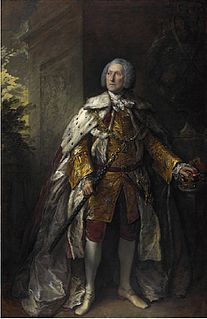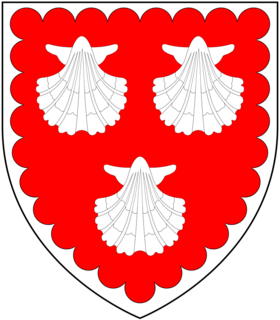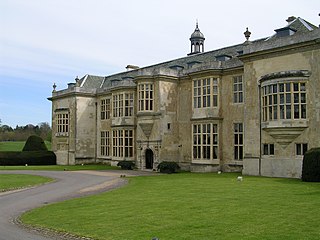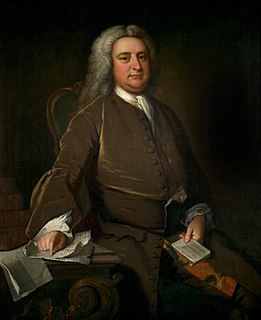William Ewer (c.1720-23 June 1789) was an English merchant, banker and politician who sat in the House of Commons between 1765 and 1789.
The House of Commons is the elected lower house of the bicameral parliaments of the United Kingdom and Canada and historically was the name of the lower houses of the Kingdom of England, Kingdom of Great Britain, Kingdom of Ireland, Northern Ireland, and Southern Ireland. Roughly equivalent bodies in other countries which were once part of the British Empire include the United States House of Representatives, the Australian House of Representatives, the New Zealand House of Representatives, and India's Lok Sabha.
Contents
Ewer was the son of Henry Ewer of The Lea, Hertfordshire and his wife Hester Dunster. He and his brother Thomas Ewer inherited the grocery business of their uncle Charles Ewer MP in 1742, and continued trading at his premises in London. They were also merchants trading with Turkey. [1]
Ewer became a director of the Bank of England in 1763, holding this post until his death. He was returned unopposed as Member of Parliament for Dorchester on the interest of his cousin Lord Shaftesbury, governor of the Levant Company, in a by-election in 1765. He retained the seat in contests in the 1768 general election and the 1774 general election. He was appointed Deputy Governor of the Bank of England in 1779. [1]

The Bank of England is the central bank of the United Kingdom and the model on which most modern central banks have been based. Established in 1694 to act as the English Government's banker, and still one of the bankers for the Government of the United Kingdom, it is the world's eighth-oldest bank. It was privately owned by stockholders from its foundation in 1694 until it was nationalised in 1946.
Dorchester was a parliamentary constituency centred on the town of Dorchester in Dorset. It returned two Members of Parliament to the House of Commons of the Parliament of the United Kingdom from 1295 to 1868, when its representation was reduced one member.
Ewer was returned unopposed as MP for Dorchester in 1780 and in 1781 succeeded Daniel Booth as Governor of the Bank of England. In parliament he was active in advising the government on the current loan and spoke explaining and defending it. He also spoke on the renewal of the Bank's charter. He was succeeded as Governor of the Bank by Richard Neave in 1783. [2] [1]
Daniel Booth was Governor of the Bank of England from 1779 to 1781. He had been Deputy Governor from 1777 to 1779. He replaced Peter Gaussen as Governor and was succeeded by William Ewer.
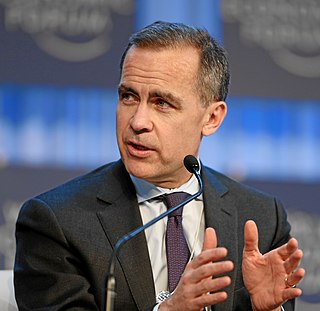
The Governor of the Bank of England is the most senior position in the Bank of England. It is nominally a civil service post, but the appointment tends to be from within the bank, with the incumbent grooming his or her successor. The Governor of the Bank of England is also Chairman of the Monetary Policy Committee, with a major role in guiding national economic and monetary policy, and is therefore one of the most important public officials in the United Kingdom.
Ewer was one of the St. Alban's Tavern group which tried to bring together Pitt and Fox. He was re-elected MP for Dorchester in the 1784 general election. As well as banking he spoke on behalf of the mercantile interest. [1]
The St. Alban's Tavern group was an informal association of 78 British Members of Parliament who aimed to bring about a reconciliation of William Pitt the Younger and Charles James Fox in a unified Ministry. They were named after the St. Alban's Tavern where the members met from January 1784.
Ewer died on 23 June 1789. [1]
